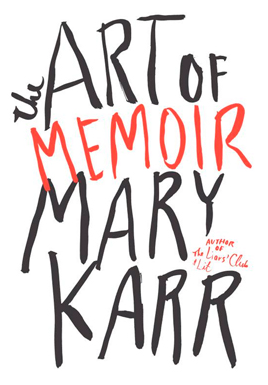
Best Books & Fabulous Films
Reindeer Games (2000): A Review

If the film Reindeer Games doesn’t ring a bell – a Christmas bell – it’s not surprising. This isn’t the kind of film that would inspire festive feelings, but it is a film that just might surprise you.
The Road
Several years after a catastrophic event has destroyed all of America’s – and maybe the whole world’s – flora and fauna, a father (Viggo Mortensen) and his son (Kodi Smit-McPhee) are on a desperate journey through this barren, cold, and gray new world. They are led by a vague shimmer of hope that there might still be a better place somewhere. “We have to keep carrying the fire,” the father tries to motivate his young son, who has seen real plants and animals only in his ragged picture book. Here and there, the morbid silent solitude is disturbed by something far worse – bands of surviving humans, just as much on the verge of starvation as father and son and, to make things worse, ready and willing to do whatever it takes to survive.

Mary Karr’s The Art of Memoir: A Review
The 1990s rang in an – if not the – era of memoir writing. Since then, memoir publications have surged and with them their readership as well as th e sound of cash registers ringing up sale after sale. One reason for their popularity can be traced back to the postmodern questioning of the very foundation upon which non-fiction was based: the concept of an infallible truth. This development, combined with the rise of social media and the willingness of people to share their intimate details with everyone, has provided fertile ground for many people of all backgrounds. Yes, academics as well as average people with little or no professional training as writers do try their hand at this ever-growing subgenre of creative non-fiction. And who can blame them? Why not write something for yourself, your family and friends as well as posterity, especially if history or mainstream society has ignored, silenced, or misrepresented you? And while there are a lot of trashy, gossipy, or unfaithful memoirs, the public as well as critics and scholars are starting to agree that memoir – if done with true honesty, voice, and a dose of creativity – can be just as powerful and masterful as the best fiction writing. So, to the autobiography I would say: “Move over bacon, there is something meatier!” And its name is memoir.
e sound of cash registers ringing up sale after sale. One reason for their popularity can be traced back to the postmodern questioning of the very foundation upon which non-fiction was based: the concept of an infallible truth. This development, combined with the rise of social media and the willingness of people to share their intimate details with everyone, has provided fertile ground for many people of all backgrounds. Yes, academics as well as average people with little or no professional training as writers do try their hand at this ever-growing subgenre of creative non-fiction. And who can blame them? Why not write something for yourself, your family and friends as well as posterity, especially if history or mainstream society has ignored, silenced, or misrepresented you? And while there are a lot of trashy, gossipy, or unfaithful memoirs, the public as well as critics and scholars are starting to agree that memoir – if done with true honesty, voice, and a dose of creativity – can be just as powerful and masterful as the best fiction writing. So, to the autobiography I would say: “Move over bacon, there is something meatier!” And its name is memoir.
Laughing about Melissa McCarthy – Thoughts of a Conflicted Fan

Ever since I saw her as Sookie St. James in Gilmore Girls (2000–2007), I’ve been a fan of the actress Melissa McCarthy. She was one of the few fat women on TV whose fatness was not a topic of conversation within the series’ universe or a motif to narrate the character’s storyline. (If you are surprised by my uninhibited use of the word “fat,” I suggest you google Fat Studies.) She was a chef, a wife, a mother, an important member of the Stars Hollow community, and ultimately, a best friend to protagonist Lorelei Gilmore. Although the “fat-sidekick” cliché clouded my love for the series, I accepted it as the price to pay for such an unconventional representation of fat femininity on television. Read more
The Last Tycoon: The Golden Age of Hitler’s Hollywood
 ollywood, 1936: Monroe Stahr (Matt Bomer), co-founder of the Brady American film studio, has just begun shooting a film about – and dedicated to – his deceased wife and well-known actress, Minna Davis (Jessica DeGouw). Suffering from a terminal heart condition, the young production chief has set his mind on finishing the project – the ‘baby’ as he calls it – as quickly as possible. However, Stahr’s ‘baby’ seems doomed to become a stillbirth: “This one won’t do at all,” says German consul Georg Gyssling (Michael Siberry) in a meeting with Stahr and studio boss Pat Bradey (Kelsey Grammer). Stahr is Jewish. A movie about a celebrity who was married to a Jew “offends the racial sensibilities of the German people,” as Gyssling puts it. The German Reich has just passed a law that forbids the import of any movie that contradicts Nazi ideology. Bradey – along with most other studio bosses of the time – considers it a financial risk to produce a movie that cannot be exported to the big German market. The production of the movie so near to Stahr’s heart comes to a harsh halt; the blank check Bradey offers his protégé as compensation seems like a cold comfort to Stahr.
ollywood, 1936: Monroe Stahr (Matt Bomer), co-founder of the Brady American film studio, has just begun shooting a film about – and dedicated to – his deceased wife and well-known actress, Minna Davis (Jessica DeGouw). Suffering from a terminal heart condition, the young production chief has set his mind on finishing the project – the ‘baby’ as he calls it – as quickly as possible. However, Stahr’s ‘baby’ seems doomed to become a stillbirth: “This one won’t do at all,” says German consul Georg Gyssling (Michael Siberry) in a meeting with Stahr and studio boss Pat Bradey (Kelsey Grammer). Stahr is Jewish. A movie about a celebrity who was married to a Jew “offends the racial sensibilities of the German people,” as Gyssling puts it. The German Reich has just passed a law that forbids the import of any movie that contradicts Nazi ideology. Bradey – along with most other studio bosses of the time – considers it a financial risk to produce a movie that cannot be exported to the big German market. The production of the movie so near to Stahr’s heart comes to a harsh halt; the blank check Bradey offers his protégé as compensation seems like a cold comfort to Stahr.
But then Bradey’s daughter Cecilia (Lily Collins), who has set her sights on Stahr as well as the movie business, presents the disappointed filmmaker with an interesting and provocative movie idea. Using the blank check, Stahr intends to bring the idea to life with Cecilia as the producer –albeit against the will of his boss. Read more






